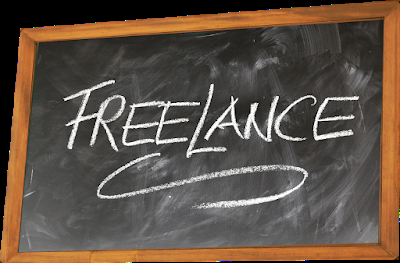In Singapore today, there are more and more self employed people due to the many opportunities arising from the gig economy. Many of them are freelancers working in many different sectors with varying skills. Some of the common examples of self employed jobs are financial advisers, property agents, grab drivers, business owners, freelance musicians/singers etc.
While being self employed brings about the flexibility of time due to no fixed working hours and possibly higher pay when they work harder, the financial aspect has to be planned out well enough due to instability of income as compared to a full time employee working in the corporate world who receives fixed income every month. There is another part which self employed workers need to take note of, which is they have essentially no CPF savings to use for housing or have any for retirement as well.

On the other side, being employed means getting a fixed monthly salary but with less flexibility in working hours. Having a fixed monthly salary makes financial planning easier as we can set savings goals and achieve it with more predictability (bearing any unforeseen circumstances. While being employed means we have an automatic savings called the CPF, it may still not be enough for retirement. Let's take a look on being employed vs self employed and who should save more.
Why Self Employed People In Singapore Should Save More Money?
Self employed people definitely should save more money as they have no CPF savings to begin with. A full time corporate employee below the age of 35 will automatically have 20% of his monthly salary saved up in his CPF account every month. On top of that, the employer puts in an additional 17% of his monthly salary into his CPF account also. This adds up to 37% which is quite a significant savings rate. This means, a person who earns just $3000 will have $1110 saved up automatically every month.
A quick calculation will show that a person who earns just $3000 at age 25 will have CPF savings of about $240,000 at the age of 35 assuming his salary grows at 3% per annum only. A self employed person will have to save $24,000 every year for 10 years just to be on par with the full time employed person above.
Most employed persons will use their CPF savings to pay for the house they buy so they can channel more money into their savings. For self employed people who do not have CPF, they should definitely factor in that they have to pay for the down payment and monthly loan installment for their house. This can be quite significant and eat up into their retirement savings significantly.
How much more should a self employed person save to match his full time employed peers?
Being self employed usually comes with higher pay. If the average starting salary for university graduates is $3000 per month for full time employed workers, then a self employed person should strive to earn $4110 per month and save that extra $1110 per month to be on par with their full time employed peers. Without doing this, they will surely be worse off at the end of the day. Furthermore, CPF earns interest of 2.5%-5% for various accounts and monies. A self employed person have to make his savings work harder by investing his savings for at least 3%-4% interest.
Employed persons may not have enough for retirement even with CPF savings
For employed persons, some may think that CPF will cover their retirement fully so they don't have to save any money and spend all their income. This is not true actually. Let's look at a typical example of an employed person and see how much he or she will have in the CPF accounts at age 55.
- Starts work at age 25 with $3000 gross monthly salary
- Has 3% salary increment annually
- 2 months salary bonus
- Buys a 4 room HDB flat at $400,000 using CPF to pay fully
With the above example, how much will this person have in his or her CPF at age 55? The answer is about $770,000.
Although $770,000 may seem like a lot of money, however, the amount we can take out will be much lesser as there will always be a basic retirement sum which we have to keep inside till age 65 before CPF life kicks in to give us some monthly income for retirement.
Also, $770,000 to last for 30 years is actually not a lot if we do some detailed calculations. Each year, we can only spend $25,666 and each month just $2138 for 30 years. Definitely not a lot of money considering cost of living will most likely at least doubled when most of us in our 30s now, retire in the future.
Employed vs Self Employed - Who Should Save More Money?
No matter if we're employed or self employed, we should all have some savings for ourselves. While those who are full time employed have CPF savings, don't forget that we will all be using a portion of it for our housing loan so there won't be too much left.
For those who are self employed, they definitely have to save much more as there is no CPF for them. They also have to first save for their first home as they have to use all cash to settle their down payment and housing loan. Then, there is retirement to save for and ensure enough to last through retirement without being on CPF annuity plan (CPF life). Of course, self employed people can also contribute to their own CPF to save for their retirement and also enjoy tax relief. By doing this, they are also enrolling themselves to a national annuity plan called CPF life.
Being employed or self employed requires different levels of financial planning. At the end of the day, its about what we want in the future. Whatever decisions we make now will have a great impact to our future.

